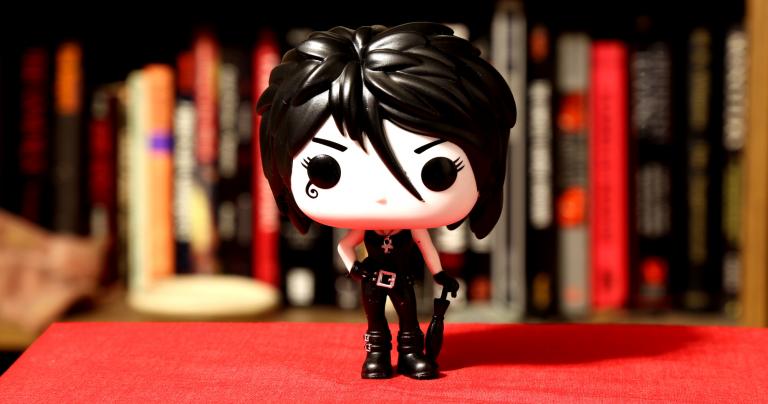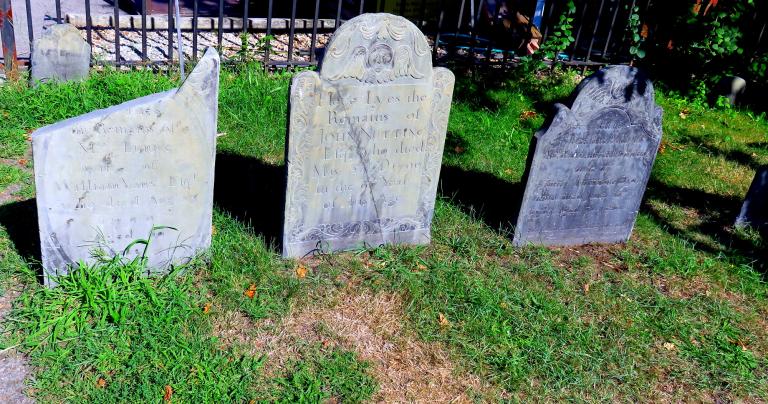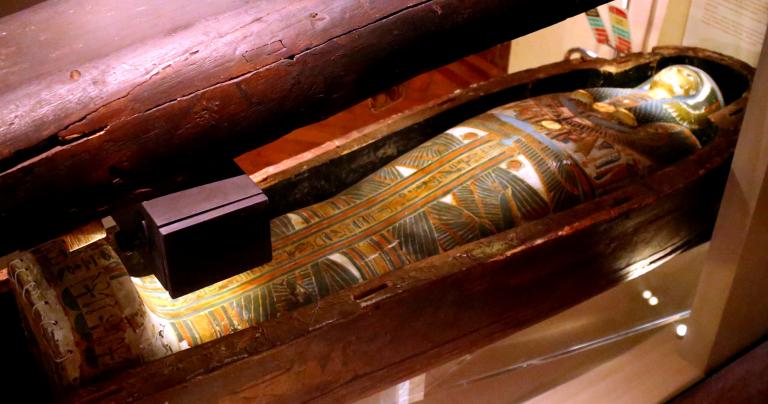This was going to be an e-mail to two family members and two very close friends. But it got a little long, and I figured if I’m wrestling with this, probably some of you are too. So I’m putting it here on the blog, where hopefully it will spur at least a few people to make some “final arrangements.” Because if you don’t decide what you want done after you’re dead – and make sure everybody knows what you want – then someone else will decide for you.
I’m not young anymore, but other than being overweight and dealing with a chronic back injury, I’m pretty healthy. Social Security’s actuarial tables say I should live another 25 years, but that’s based only on age and gender – I expect to beat that by at least a few years. So I’m not expecting to abandon my body any time soon.
But I recently attended two funerals in eight days, and that served as a reminder that anything can happen at any time.
My final arrangements
I have a will – it’s in the fire safe in my home office. It’s a rather simple will, but if I die suddenly it will suffice. At some point I’m going to want to write a new one and leave some specific things to some specific people. Ideally I’ll give those things away before I die, but I’m not ready to turn loose of them just yet.
I have an advance directive. It’s in the fire safe too, and one of those close friends (who’s a medical professional) has a copy. I wrote it after the Terri Schiavo tragedy in 2005. If there’s a reasonable chance I can recover from a incapacitating injury or illness, I want the doctors to do what they can. But if it’s just a question of prolonging my existence, let me die. Quality of life is more important than quantity of life.
I do not have a durable power of attorney. I need to do that.
I’ve given some pretty specific instructions about my funeral. You may have seen it – I put it in a blog post last year. At some point I’ll probably write a full ritual script for it, but I’m not ready go there just yet. What’s in that post is enough if it’s needed unexpectedly.
I’ve made some good preparations, but what I have not done is tell people what do to with my body after I’m dead. And I need to do that, or someone will have to decide for me, at a time when they would already be upset and stressed. That’s not fair to them, and I may not like what they choose.
Theologies of the (dead) body
The certainty of death and the uncertainty of what comes after death isn’t the only reason for the development of religion, but it’s near the top of the list. And dealing with death means dealing with dead bodies.
Burial is a very old tradition. Much of what we know of our early human and pre-human ancestors is possible only because people buried their dead, either in caves or in the ground. We don’t know what those people were thinking, and it’s tempting to assume burial was simply the easiest way to get rid of a corpse. But there is intuitive wisdom in burying a body in the Earth – that is where we came from, and ultimately it is where we will return.
The Egyptians were not the only people who mummified bodies, but they are most famous for it. The Egyptian concept of a multi-part soul and the interaction of those parts is beyond the scope of this post. What’s important is their belief that preserving the body is necessary to insure life continues beyond death.
In contrast, some cultures – most notably, Hindus – believe that cremation helps release a soul from its body, speeding up the process of reincarnation.
Traditionally, Christians have insisted on burial. The Catholic church did not permit cremation until 1963, and in 2016 issued instructions forbidding scattering ashes or keeping them anyplace other than a consecrated site. Many Christians ignore those rules, but some fundamentalists (who expect a literal resurrection of their body) insist burial is the only permissible option.
A Pagan view of the body
On one hand, I’m a Pagan who believes the body is good and holy, not a “prison” for the soul. As such, it should be treated with proper reverence – simply casting it aside is disrespectful.
On the other hand, I’m an animist and a theist who believes we are far more than our bodies, and that the non-physical parts of who and what we are live on after death. I’m not ready to declare that consciousness is fundamental (though that may be true), but I am certain it is far more than the product of brain activity.
What is obvious is that after I am dead, I will not need my body anymore. I want it treated with dignity and respect, but it’s not me. It strikes me as useless vanity to spend significant amounts of either my own finances or the Earth’s resources to preserve it.
If I am to live on in this world, it will be because I have influenced others while I was alive, and because I was a part of something greater than myself. It will not be because my body lies embalmed in a concrete vault.
But something has to be done with it.
Options for disposing of a body
Part of me wants to be buried in a traditional cemetery. That’s what everybody did (that I knew, anyway) until a short time ago. Besides, what sometimes-goth hasn’t dreamed of decaying in an ornate coffin, underneath a granite tombstone? But cemetery plots, fancy coffins, and engraved headstones are expensive. I’d rather leave whatever money I have left to the living. And I want no part of embalming fluid – that stuff is toxic to the environment.
Another part of me wants a green burial. Bury me without a coffin, in a simple shroud, but with enough grave goods to delight – and confuse – future archaeologists. Let me feed the worms and the trees. But there aren’t a lot of green cemeteries, and they still use up land to hold dead bodies. Sky burial is attractive – particular for someone connected with the Battle Raven – but very difficult to do in this country.
Cremation is an increasingly popular option – it now accounts for over half the body disposals in the United States. There’s something properly Pagan about a funeral pyre, even if it’s a modern crematorium and not a huge pile of wood. But while cremation doesn’t use embalming chemicals or require land for burial, it does require huge amounts of energy and results in significant CO2 emissions.
There is the option to donate your body for scientific research. Medical schools need cadavers for beginning doctors to practice on, and forensic research needs bodies. But when the study is over something still has to be done with what remains – usually that’s cremation.
Organ donation is a good and noble thing, but it only takes care of a few small parts of the body.
Perhaps the most environmentally friendly way to dispose of a body is to liquefy it, sometimes called “water cremation.” Soft tissue is dissolved and the resulting liquid can be flushed, while the bones are ground and can be returned to the family, like ashes. The process is relatively new and is currently legal in only 16 states – Texas is not one of them.

What to do with my body?
All of those options (except embalming) are attractive in one way or another. How do I decide?
It’s not fair for me to refuse to decide and leave the decision to my wife, my nephew, my life-long best friend, or my fellow polytheist priest. They’ll have enough to deal with as it is. It’s my responsibility to choose, and to make that choice known.
Given all that, I choose cremation. As things currently stand, it’s easiest and simplest for those making the arrangements, and that’s my primary concern. Burn my body, then scatter some of the ashes here in North Texas and the rest in Tennessee.
Again, I’m not expecting this to be relevant for a long time. I may change my mind, particularly if green burial or water cremation becomes more accessible in the next 20 or 30 years. But unless I put something to the contrary in writing, this is what I want done.
The time to think about death is not when you’re dying, but on a beautiful Spring day when all is right in the world and you expect to live forever, even though you know you won’t. Make decisions now, before you need them – and before someone else has to make them for you.

















